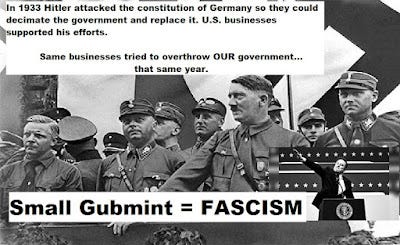by Scott Creighton
Where is the sovereign wealth fund money coming from and where is it going to go?
'In a fact sheet accompanying the order, Mr. Trump’s team cited $5.7 trillion in assets held by the federal government and added that the government held even more “indirectly, including through natural resource reserves.”
According to the Treasury Department’s website, as of 2023 the government had $5.3 trillion. Of that, the United States held roughly $922.2 billion in cash, which is mostly used to run its operations. It held $423 billion in so-called inventory, most of it from the Department of Defense, which includes stockpiles of commodities or equipment like ammunition and tactical missiles. It had $1.7 trillion in outstanding loans made by government agencies like the Department of Education and the Small Business Administration, and another $1.2 trillion in assets like land, buildings, structures, facilities and software.
It’s unclear how those trillions of dollars could flow into a sovereign wealth fund. The U.S. government has relied on ever larger amounts of borrowed money and is projected to run budget deficits long into the future.
Mr. Lutnick speculated that the government could take stakes in TikTok or private companies it worked with. He cited government funding for Covid-19 vaccines as an example. “If we are going to buy two billion Covid vaccines, maybe we should have some warrants and some equity in these companies,” Mr. Lutnick said...' New York Times
And here is an old idea with new legs for these greedy oligarch fascists to invest in: selling your roads to foreign investors.
'Earlier this month, in a triumph for Gov. Mitch Daniels, Indiana’s House narrowly approved his proposal to lease the 157-mile Indiana Toll Road, which spans the northern part of the state, for $3.85 billion to a joint venture of Cintra, a Spanish company, and Australia’s Macquarie Bank. The two companies have been active in the U.S. road business. In 2004, the two inked a 99-year lease for the 7.8-mile elevated Chicago Skyway. Last year, Macquarie completed its acquisition of the Dulles Greenway outside Washington, D.C. And Cintra, which manages toll roads in Europe and the Americas, is a strategic partner to the Texas state government in the planned Trans-Texas Corridor. There are likely more such deals to come.
For Daniels—who failed to live up to his nickname (“The Blade”) when he served as director of the Office of Management and Budget in the first Bush administration—the 75-year lease is an elegant solution. The state needs billions of dollars to invest in new roads. Getting the cash upfront will allow Daniels to speed up construction on needed infrastructure projects, create new jobs, and fund his Clintonian Major Moves initiative. (Here’s a list of projects to be funded and a fact sheet on the deal.) And by raising the cash from foreigners, he’s doing his part to rein in the pernicious current-account deficit. “Too often in Indiana, we see Hoosier dollars and jobs leaving the state. Major Moves is an exciting opportunity to recapture U.S. dollars by attracting foreign investment, and use them to create jobs for Hoosiers,” he said.
What’s in it for the foreign companies? Huge potential profits. Gigantic, steady profits. Toll roads are an incredible asset class. They’re often monopolies. They can support debt, since they provide a recurring guaranteed revenue stream that is likely to rise over time, as more people take to the roads and tolls increase. According to Cintra, the Indiana Toll Road generated $96 million in revenues in 2005, and Cintra expects a 12.5 percent internal rate of return on its investment.' Slate 2006
But don't worry, you have protections against fraudulent tolls being sucked out of your bank account automatically by a rapacious foreign entity which smells blood in the water... oh no wait... sorry. Hero of the People (right Meryl?) Musk has shut it down. Oh well.
'Three Musk allies, some of whom are tied to his Department of Government Efficiency, have now embedded with the consumer bureau, according to the CFPB’s employees union.
Musk posted “CFPB RIP” with a tombstone emoji on his social media site X a few hours later, raising the prospect that the consumer protection agency could be the next U.S. Agency for International Development, which he has said should “die.”
The CFPB polices a wide array of financial institutions and nonbank companies. It was conceived by then-law professor Elizabeth Warren and established in the 2010 Dodd Frank law that overhauled the financial system in the wake of the Great Recession. Conservatives and financial institutions have long criticized the bureau as an unaccountable regulator with too broad a reach.' Politico Feb 8 2025
The CFPB has reportedly save the American consumers over $20 billion dollars over it's lifetime. But somehow, to a thieving South African Nazi scumbag like Musk, that means it's a 'waste'



There will be non-stop reporting of this administration until you can't anymore.